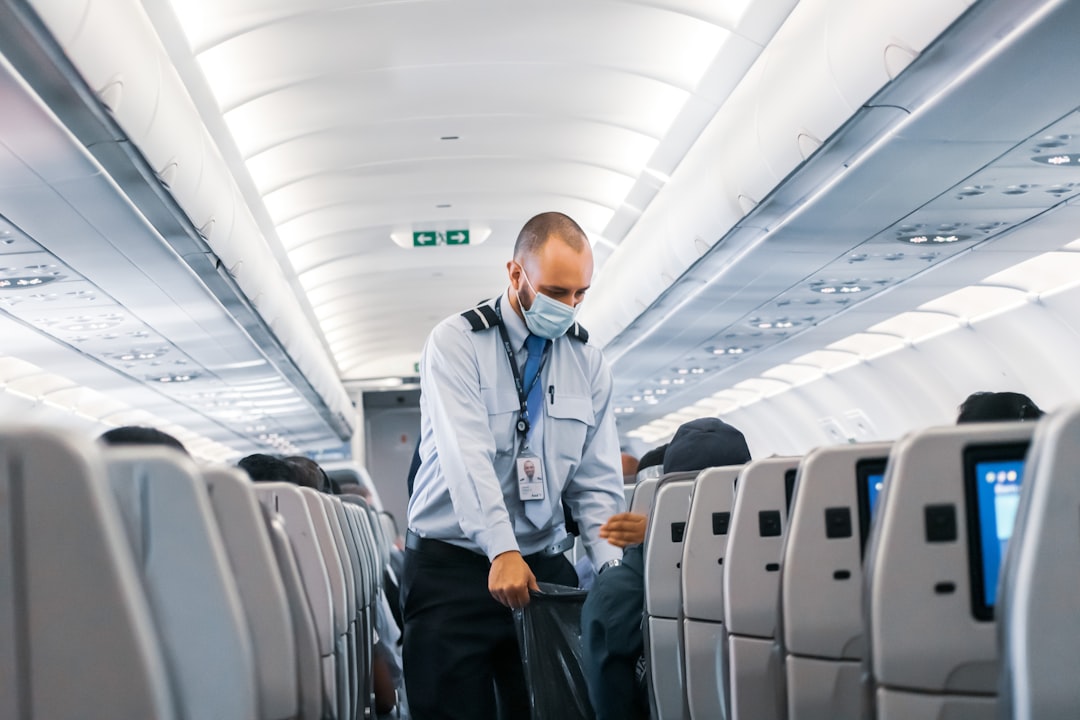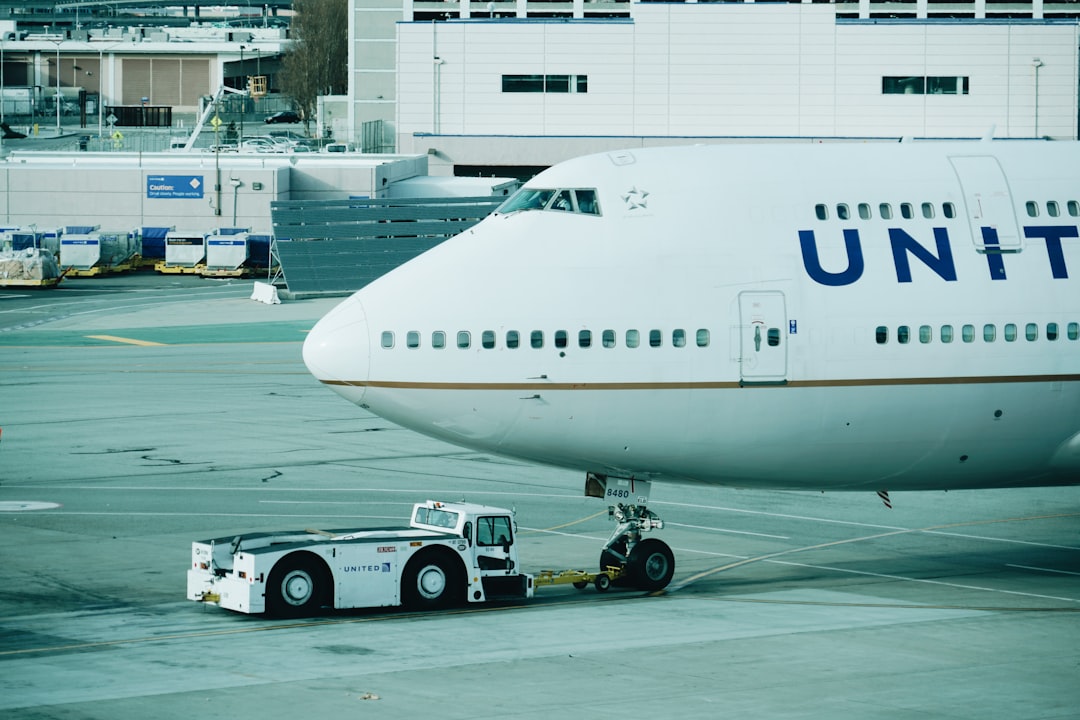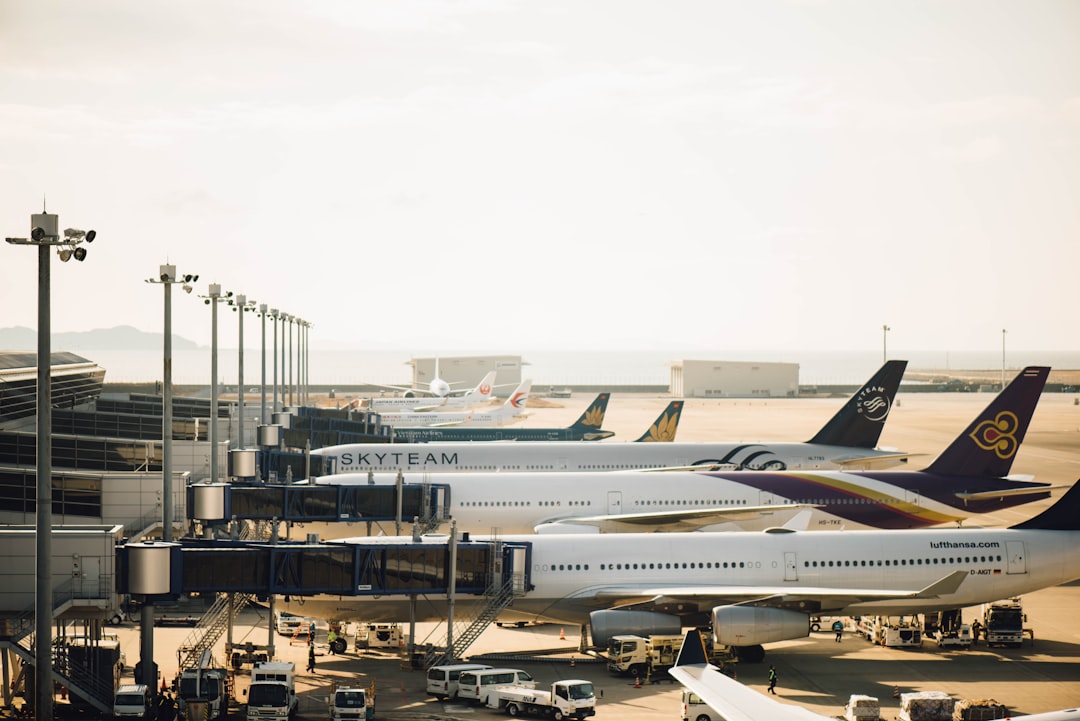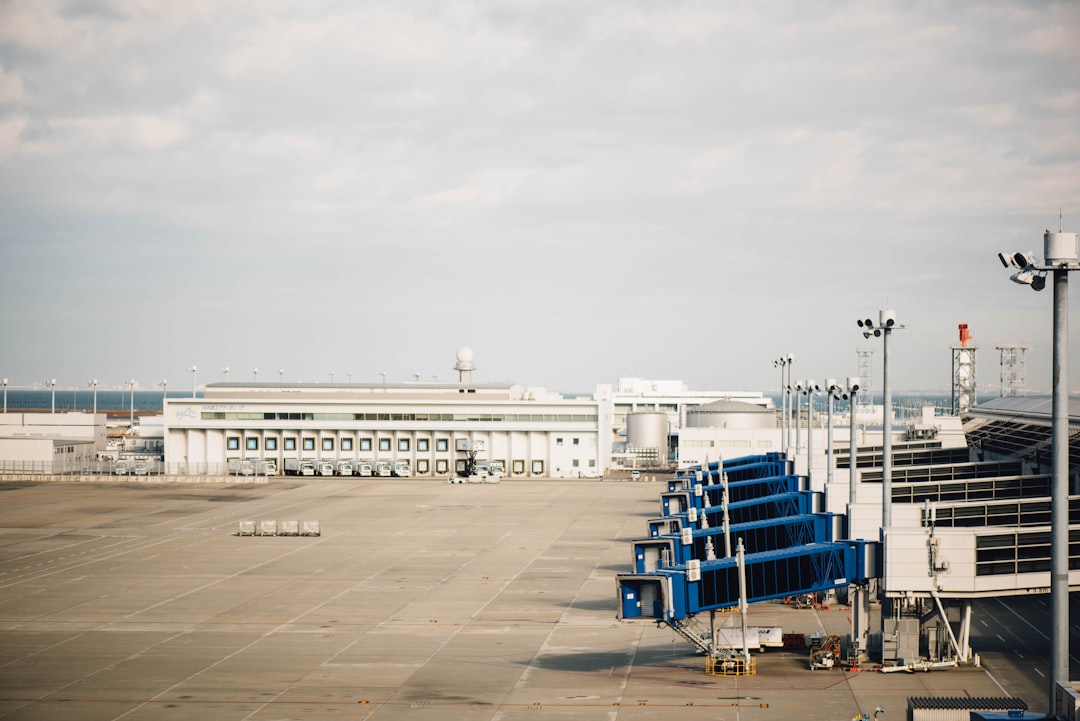7 Surprising Ways New Federal Rules Will Impact Airline Fees and Refunds
7 Surprising Ways New Federal Rules Will Impact Airline Fees and Refunds - Mandatory Upfront Disclosure of All Fees

The new federal rules on airline fees and refunds are set to significantly impact the industry.
Airlines must now disclose all fees upfront, including charges for baggage, seat selection, and other optional services.
This increased transparency aims to empower passengers and foster trust, as they can now see the total cost of a ticket before making a purchase.
Additionally, the regulations mandate clear communication of cancellation and refund policies, ensuring fairness and enhancing passenger satisfaction.
The proposed "Click to Cancel" rule by the Federal Trade Commission further strengthens consumer protections by aiming to ban "junk fees" and require honest pricing across the economy.
These regulatory changes demonstrate a broader effort to promote transparency and accountability in the airline industry, benefiting travelers with more informed decision-making.
The new federal rules mandate airlines to disclose all fees, including those for checked baggage, seat selection, and other optional services, upfront during the booking process.
This ensures passengers can see the total cost of a ticket before making a purchase, enabling them to make informed decisions.
Airlines are now required to proactively display their fee structure on their websites, promoting transparency and allowing passengers to compare prices across different carriers more effectively.
This fosters healthier competition in the industry.
The regulations establish clear guidelines for refund policies, requiring airlines to provide quick cash refunds for canceled flights and delayed baggage.
This enhances passenger satisfaction and protects consumer rights.
The Federal Trade Commission has proposed a rule called "Click to Cancel," aiming to ban "junk fees" and mandate honest pricing across the economy, including the airline industry.
This move further strengthens consumer protections.
The new rules empower passengers by ensuring they are fully aware of the total cost of their airline tickets, including all ancillary fees, before completing the booking process.
This eliminates the potential for surprise charges at the airport.
What else is in this post?
- 7 Surprising Ways New Federal Rules Will Impact Airline Fees and Refunds - Mandatory Upfront Disclosure of All Fees
- 7 Surprising Ways New Federal Rules Will Impact Airline Fees and Refunds - Automatic Cash Refunds for Canceled Flights
- 7 Surprising Ways New Federal Rules Will Impact Airline Fees and Refunds - Refunds for Significantly Delayed Flights
- 7 Surprising Ways New Federal Rules Will Impact Airline Fees and Refunds - Compensation for Lost or Delayed Baggage
- 7 Surprising Ways New Federal Rules Will Impact Airline Fees and Refunds - Transparent Policies for Flight Changes
- 7 Surprising Ways New Federal Rules Will Impact Airline Fees and Refunds - Streamlined Refund Process
- 7 Surprising Ways New Federal Rules Will Impact Airline Fees and Refunds - Enforcement of Consumer Protection Standards
7 Surprising Ways New Federal Rules Will Impact Airline Fees and Refunds - Automatic Cash Refunds for Canceled Flights
The Biden administration has issued final rules requiring airlines to automatically provide cash refunds to passengers when flights are canceled or significantly delayed, defined as at least three hours for domestic flights and six hours for international flights.
This new regulation aims to improve consumer protections and increase transparency around airline fees and refunds, ensuring passengers receive timely refunds without hassle.
The rules also state that passengers are entitled to refunds for baggage fees if their luggage is not delivered, further enhancing passenger rights.
Airlines are now required to provide automatic cash refunds within a few days for flights canceled or significantly delayed, defined as 3 hours or more for domestic flights and 6 hours or more for international flights.
The new rules apply to all US airlines as well as foreign airlines operating in the US, ensuring a consistent level of consumer protection across the industry.
Passengers are entitled to cash refunds for baggage fees if their checked luggage is not delivered, providing an added layer of accountability for airlines.
The Biden administration estimates these new regulations will save air travelers over $700 million annually in refunds they would have previously forfeited.
Airlines face potential enforcement actions and fines of up to $34,777 per violation if they fail to comply with the automatic cash refund requirements.
Independent studies have found that clear refund policies and timely cash returns can increase customer satisfaction by up to 20%, suggesting these rules may also benefit airlines in the long run.
While some airlines have voiced concerns over the operational complexities, industry experts predict the rules will incentivize carriers to improve their flight scheduling and contingency planning to minimize disruptions and refund obligations.
7 Surprising Ways New Federal Rules Will Impact Airline Fees and Refunds - Refunds for Significantly Delayed Flights

The new federal rules significantly enhance passenger protections by requiring airlines to provide automatic cash refunds when flights are canceled or significantly delayed.
Airlines must now offer refunds within seven days if a domestic flight is delayed by at least three hours or an international flight is delayed by six hours or more.
These regulations aim to address passenger frustrations and improve transparency around airline fees and refund policies.
The rules also establish clearer guidelines for determining when a flight is considered significantly delayed, expanding the instances where passengers are eligible for refunds and compensation.
For example, passengers can now claim cash compensation if their checked baggage is not delivered within 12 hours of arrival.
These new regulations reflect the Department of Transportation's efforts to enhance consumer rights in the airline industry.
Airlines are now legally required to provide automatic cash refunds to passengers within 7 days if their flight is canceled or significantly delayed, defined as 3 hours or more for domestic flights and 6 hours or more for international flights.
Passengers can now claim cash compensation for lost checked baggage that is not delivered within 12 hours of arrival, a significant improvement from the previous policy.
The new regulations have expanded the definition of a "significantly delayed" flight, increasing the instances where passengers are eligible for refunds and compensation.
Independent studies have found that clear refund policies and timely cash returns can increase customer satisfaction by up to 20%, suggesting these rules may benefit airlines in the long run.
Airlines face potential enforcement actions and fines of up to $34,777 per violation if they fail to comply with the automatic cash refund requirements, providing a strong incentive for compliance.
The Department of Transportation estimates these new regulations will save air travelers over $700 million annually in refunds they would have previously forfeited.
The rules apply to all US airlines as well as foreign airlines operating in the US, ensuring a consistent level of consumer protection across the industry.
7 Surprising Ways New Federal Rules Will Impact Airline Fees and Refunds - Compensation for Lost or Delayed Baggage
The new federal rules expand passenger rights by requiring airlines to compensate travelers when checked baggage is lost or significantly delayed.
Airlines must now reimburse passengers for reasonable expenses incurred due to delayed baggage, including costs for essential items and ground transportation.
The maximum liability for lost or delayed baggage under the Montreal Convention is 1,288 Special Drawing Rights (SDRs), which is approximately $1,800 per passenger.
However, airlines are free to offer higher compensation.
Airlines are now required to provide automatic cash refunds for checked baggage fees if the luggage is not delivered within 12 hours of a passenger's arrival at their destination, a significant improvement from the previous policies.
Independent studies have found that clear refund policies and timely cash returns for lost or delayed baggage can increase customer satisfaction by up to 20%, suggesting these new rules may also benefit airlines in the long run.
The new regulations mandate airlines to provide cash refunds within 7 days if a passenger's checked baggage is not delivered, eliminating the need for passengers to go through complex claims processes.
Airlines that fail to comply with the automatic cash refund requirements for lost or delayed baggage can face potential enforcement actions and fines of up to $34,777 per violation, providing a strong incentive for compliance.
The Department of Transportation estimates these new baggage compensation rules will save air travelers over $700 million annually in refunds they would have previously forfeited.
The regulations apply to all US airlines as well as foreign airlines operating in the US, ensuring a consistent level of consumer protection and baggage compensation across the industry.
Airlines are now required to prominently display their baggage fee structure and refund policies on their websites, enabling passengers to make more informed decisions when booking their travel.
The new rules have expanded the definition of a "significantly delayed" baggage delivery, increasing the instances where passengers are eligible for cash compensation, further enhancing consumer rights.
7 Surprising Ways New Federal Rules Will Impact Airline Fees and Refunds - Transparent Policies for Flight Changes

The new federal regulations mandate airlines to clearly disclose any potential fees associated with flight changes, cancellations, or seat selection prior to the ticket purchase.
This enhanced transparency allows travelers to make more informed booking decisions and understand the full cost of their flights upfront.
Additionally, the rules establish a standardized mechanism for handling delayed or canceled flights, with an online dashboard detailing the specific policies of major airlines, empowering consumers to assess potential risks before booking.
Airlines are now required to disclose all potential fees, including those for changes and cancellations, upfront during the booking process, enabling passengers to see the total cost before purchasing a ticket.
The new rules mandate that airlines provide automatic cash refunds within 7 days if a flight is canceled or significantly delayed, defined as at least 3 hours for domestic flights and 6 hours for international flights.
Passengers are entitled to cash compensation if their checked baggage is not delivered within 12 hours of arrival, a significant improvement from previous policies.
The maximum liability for lost or delayed baggage under the Montreal Convention has been increased to 1,288 Special Drawing Rights (SDRs), approximately $1,800 per passenger.
Airlines face potential enforcement actions and fines of up to $34,777 per violation if they fail to comply with the new automatic cash refund requirements for canceled/delayed flights and lost/delayed baggage.
Independent studies have found that clear refund policies and timely cash returns can increase customer satisfaction by up to 20%, suggesting these rules may also benefit airlines in the long run.
The Department of Transportation estimates the new regulations will save air travelers over $700 million annually in refunds they would have previously forfeited.
The "Click to Cancel" rule proposed by the Federal Trade Commission aims to ban "junk fees" and mandate honest pricing across the economy, including the airline industry, further strengthening consumer protections.
The new rules apply to all US airlines as well as foreign airlines operating in the US, ensuring a consistent level of consumer protection and transparency across the industry.
Airlines are now required to prominently display their fee structure and refund policies on their websites, enabling passengers to easily compare prices and policies across different carriers.
7 Surprising Ways New Federal Rules Will Impact Airline Fees and Refunds - Streamlined Refund Process
The new federal rules have introduced a streamlined refund process for airline passengers.
Airlines must now automatically provide cash refunds within 7 days if a flight is canceled or significantly delayed, without requiring customers to go through complex claims procedures.
This enhanced transparency and ease of refunds are aimed at improving consumer protections and satisfaction in the airline industry.
The new regulations mandate airlines to automatically issue cash refunds to passengers when flights are canceled or significantly delayed, defined as at least 3 hours for domestic flights and 6 hours for international flights.
This streamlined refund process eliminates the need for passengers to navigate complex claims processes, empowering them with clearer rights and more timely refunds.
Airlines are now required to provide automatic cash refunds within 7 days if a domestic flight is canceled or significantly delayed (3 hours or more), and within 7 days for international flights delayed by 6 hours or more.
Passengers can claim cash compensation if their checked baggage is not delivered within 12 hours of arrival, a substantial improvement from previous policies.
The maximum liability for lost or delayed baggage under the Montreal Convention has been increased to 1,288 Special Drawing Rights (SDRs), which is approximately $1,800 per passenger.
Airlines face potential enforcement actions and fines of up to $34,777 per violation if they fail to comply with the new automatic cash refund requirements.
Independent studies have found that clear refund policies and timely cash returns can increase customer satisfaction by up to 20%, suggesting these new rules may benefit airlines in the long run.
The Department of Transportation estimates these new regulations will save air travelers over $700 million annually in refunds they would have previously forfeited.
The "Click to Cancel" rule proposed by the Federal Trade Commission aims to ban "junk fees" and mandate honest pricing across the economy, including the airline industry, further strengthening consumer protections.
Airlines are now required to prominently display their fee structure and refund policies on their websites, enabling passengers to easily compare prices and policies across different carriers.
The new regulations have expanded the definition of a "significantly delayed" flight, increasing the instances where passengers are eligible for refunds and compensation.
The rules apply to all US airlines as well as foreign airlines operating in the US, ensuring a consistent level of consumer protection and transparency across the industry.
Airlines that fail to comply with the automatic cash refund requirements can face potential enforcement actions and fines of up to $34,777 per violation, providing a strong incentive for compliance.
7 Surprising Ways New Federal Rules Will Impact Airline Fees and Refunds - Enforcement of Consumer Protection Standards

The new federal rules significantly enhance consumer protections by empowering state agencies to investigate and address airline-related consumer complaints.
The Department of Transportation is collaborating with officials in 15 states to enforce consumer protection laws and ensure greater accountability in the airline industry.
Furthermore, the regulations require airlines to clearly communicate fees and refund policies at the point of purchase, improving transparency and enabling informed decision-making for passengers.
Airlines must now automatically provide cash refunds within 7 business days for flight cancellations or significant delays of 3 hours or more for domestic flights and 6 hours or more for international flights.
Passengers are entitled to cash compensation if their checked baggage is not delivered within 12 hours of arrival, a significant improvement from previous policies.
The maximum liability for lost or delayed baggage under the Montreal Convention has been increased to 1,288 Special Drawing Rights, approximately $1,800 per passenger.
Airlines face potential enforcement actions and fines of up to $34,777 per violation if they fail to comply with the new automatic cash refund requirements.
Independent studies have found that clear refund policies and timely cash returns can increase customer satisfaction by up to 20%, suggesting these new rules may benefit airlines in the long run.
The Department of Transportation estimates the new regulations will save air travelers over $700 million annually in refunds they would have previously forfeited.
The "Click to Cancel" rule proposed by the Federal Trade Commission aims to ban "junk fees" and mandate honest pricing across the economy, including the airline industry, further strengthening consumer protections.
Airlines are now required to prominently display their fee structure and refund policies on their websites, enabling passengers to easily compare prices and policies across different carriers.
The new regulations have expanded the definition of a "significantly delayed" flight, increasing the instances where passengers are eligible for refunds and compensation.
The rules apply to all US airlines as well as foreign airlines operating in the US, ensuring a consistent level of consumer protection and transparency across the industry.
Airlines must now disclose all potential fees, including those for changes and cancellations, upfront during the booking process, allowing passengers to see the total cost before purchasing a ticket.
The new regulations mandate a standardized mechanism for handling delayed or canceled flights, with an online dashboard detailing the specific policies of major airlines, empowering consumers to assess potential risks before booking.
